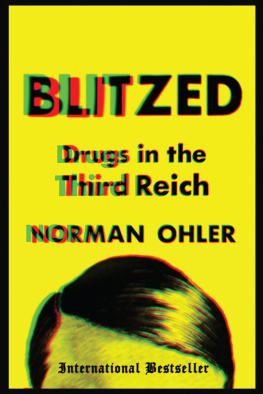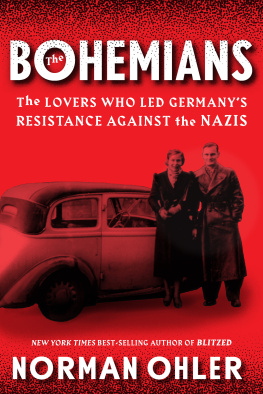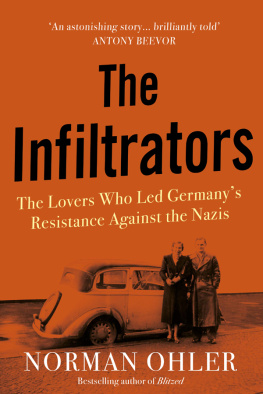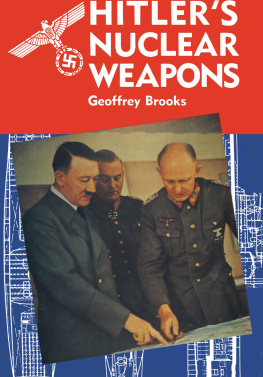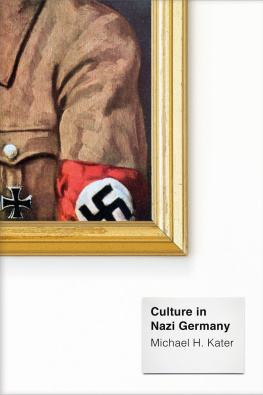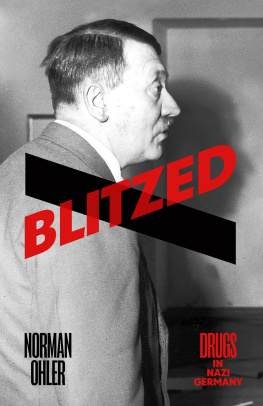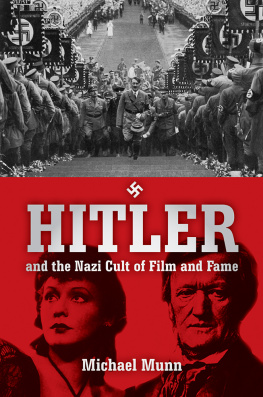Norman Ohler - Blitzed: drugs in the Third Reich
Here you can read online Norman Ohler - Blitzed: drugs in the Third Reich full text of the book (entire story) in english for free. Download pdf and epub, get meaning, cover and reviews about this ebook. year: 2017, publisher: Houghton Mifflin Harcourt, genre: History. Description of the work, (preface) as well as reviews are available. Best literature library LitArk.com created for fans of good reading and offers a wide selection of genres:
Romance novel
Science fiction
Adventure
Detective
Science
History
Home and family
Prose
Art
Politics
Computer
Non-fiction
Religion
Business
Children
Humor
Choose a favorite category and find really read worthwhile books. Enjoy immersion in the world of imagination, feel the emotions of the characters or learn something new for yourself, make an fascinating discovery.
- Book:Blitzed: drugs in the Third Reich
- Author:
- Publisher:Houghton Mifflin Harcourt
- Genre:
- Year:2017
- Rating:5 / 5
- Favourites:Add to favourites
- Your mark:
- 100
- 1
- 2
- 3
- 4
- 5
Blitzed: drugs in the Third Reich: summary, description and annotation
We offer to read an annotation, description, summary or preface (depends on what the author of the book "Blitzed: drugs in the Third Reich" wrote himself). If you haven't found the necessary information about the book — write in the comments, we will try to find it.
Norman Ohler: author's other books
Who wrote Blitzed: drugs in the Third Reich? Find out the surname, the name of the author of the book and a list of all author's works by series.
Blitzed: drugs in the Third Reich — read online for free the complete book (whole text) full work
Below is the text of the book, divided by pages. System saving the place of the last page read, allows you to conveniently read the book "Blitzed: drugs in the Third Reich" online for free, without having to search again every time where you left off. Put a bookmark, and you can go to the page where you finished reading at any time.
Font size:
Interval:
Bookmark:
First U.S. edition 2017
Copyright 2015 by Verlag Kiepenheuer & Witsch GmbH & Co. KG, Cologne Germany
Copyright 2015 by Norman Ohler
Translation copyright 2017 by Shaun Whiteside
All rights reserved
For information about permission to reproduce selections from this book, write to or to Permissions, Houghton Mifflin Harcourt Publishing Company, 3 Park Avenue, 19th Floor, New York, New York 10016.
www.hmhco.com
First published in the German language as Der Totale Rausch: Drogen im Dritten Reich by Norman Ohler with an afterword by Hans Mommsen. Published by arrangement with Penguin Books Ltd.
Library of Congress Cataloging-in-Publication Data is available.
ISBN 978-1-328-66379-5
Photo credits appear on .
Cover design by Albert Tang
Cover photograph by Universal History Archive/UIG via Getty Images
e ISBN 978-1-328-66409-9
v1.0217
A political system devoted to decline instinctively does much to speed up that process.
Jean-Paul Sartre
National Socialism was toxic, in the truest sense of the word. It gave the world a chemical legacy that still affects us today: a poison that refuses to disappear. On one hand, the Nazis presented themselves as clean-cut and enforced a strict, ideologically underpinned anti-drug policy with propagandistic pomp and draconian punishments. On the other hand, a particularly potent and perfidious substance became a popular product under Hitler. This drug carved out a great career for itself all over the German Reich, and later in the occupied countries of Europe. Under the trademark Pervitin, this little pill became the accepted Volksdroge, or peoples drug, and was on sale in every pharmacy. It wasnt until 1939 that its use was restricted by making Pervitin prescription-only, and the pill was not subjected to regulation until the Reich Opium Law in 1941.
Its active ingredient, methamphetamine, is now either illegal or strictly regulated, it is a potentially destructive and highly addictive substance. Hardly anyone knows about its original rise in Nazi Germany.
Under a clean-swept summer sky stretching over both industrial zones and uniform housing, I take the suburban train southeast, to the edge of Berlin. In order to find the remnants of the Temmler factory I have to get out at Adlershof, which nowadays calls itself Germanys most modern technology park. Avoiding the campus, I strike off across an urban no-mans-land, skirting dilapidated factory buildings and passing through a wilderness of crumbling brick and rusty steel.
The Temmler factory moved here in 1933. It was only one year later that Albert Mendel (the Jewish co-owner of the Tempelhof Chemical Factory) was expropriated by the racist laws of the regime and Temmler took over his share, quickly expanding the business. These were good times for the German chemical industry (or at least for its Aryan members), and pharmaceutical development boomed. Research was tirelessly conducted on new, pioneering substances that would ease the pain of modern humanity or sedate its troubles. Many of the resulting pharmacological innovations shape the way we consume medicine today.
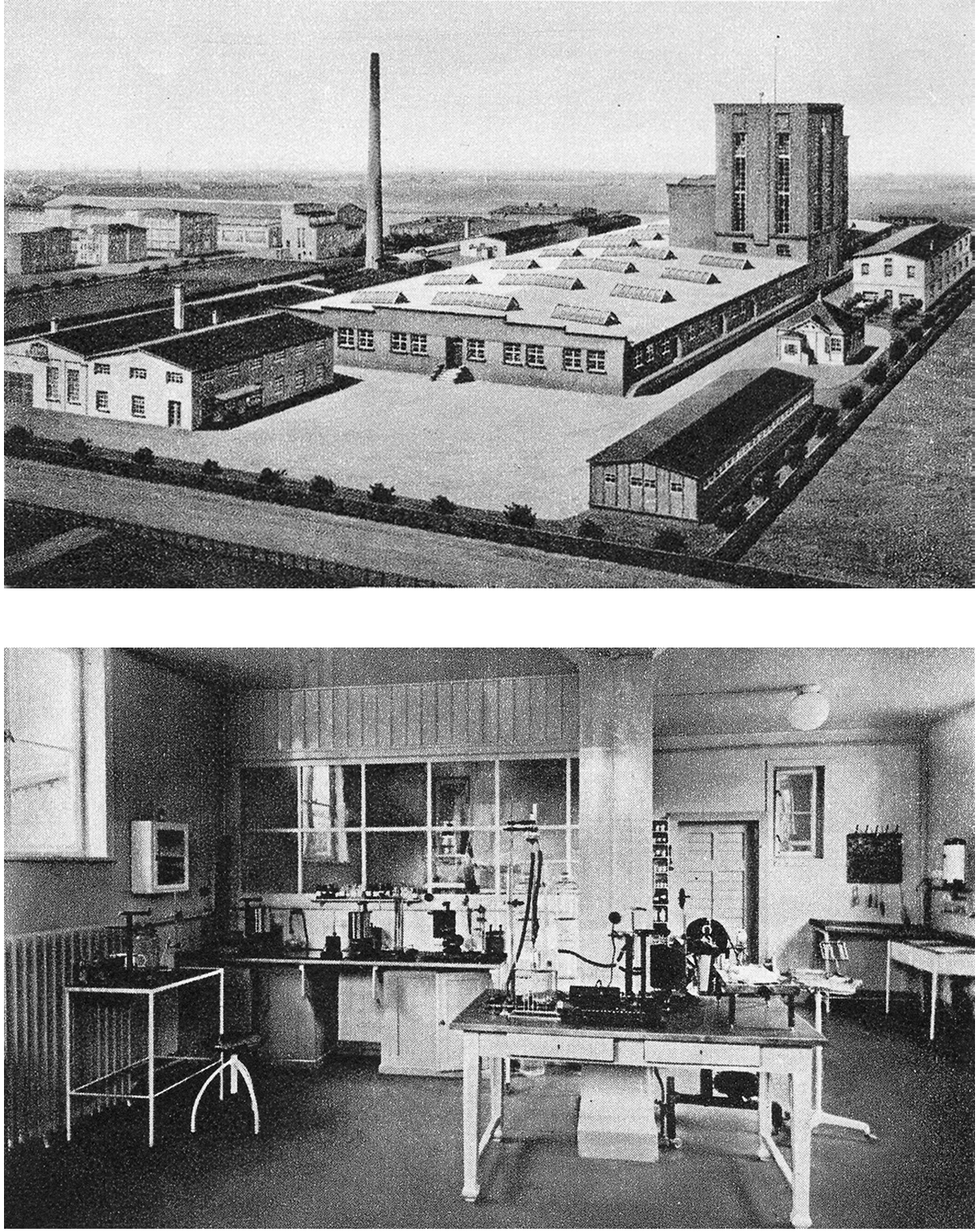
The Temmler factory in Berlin-Johannisthal, then... and now (following images).
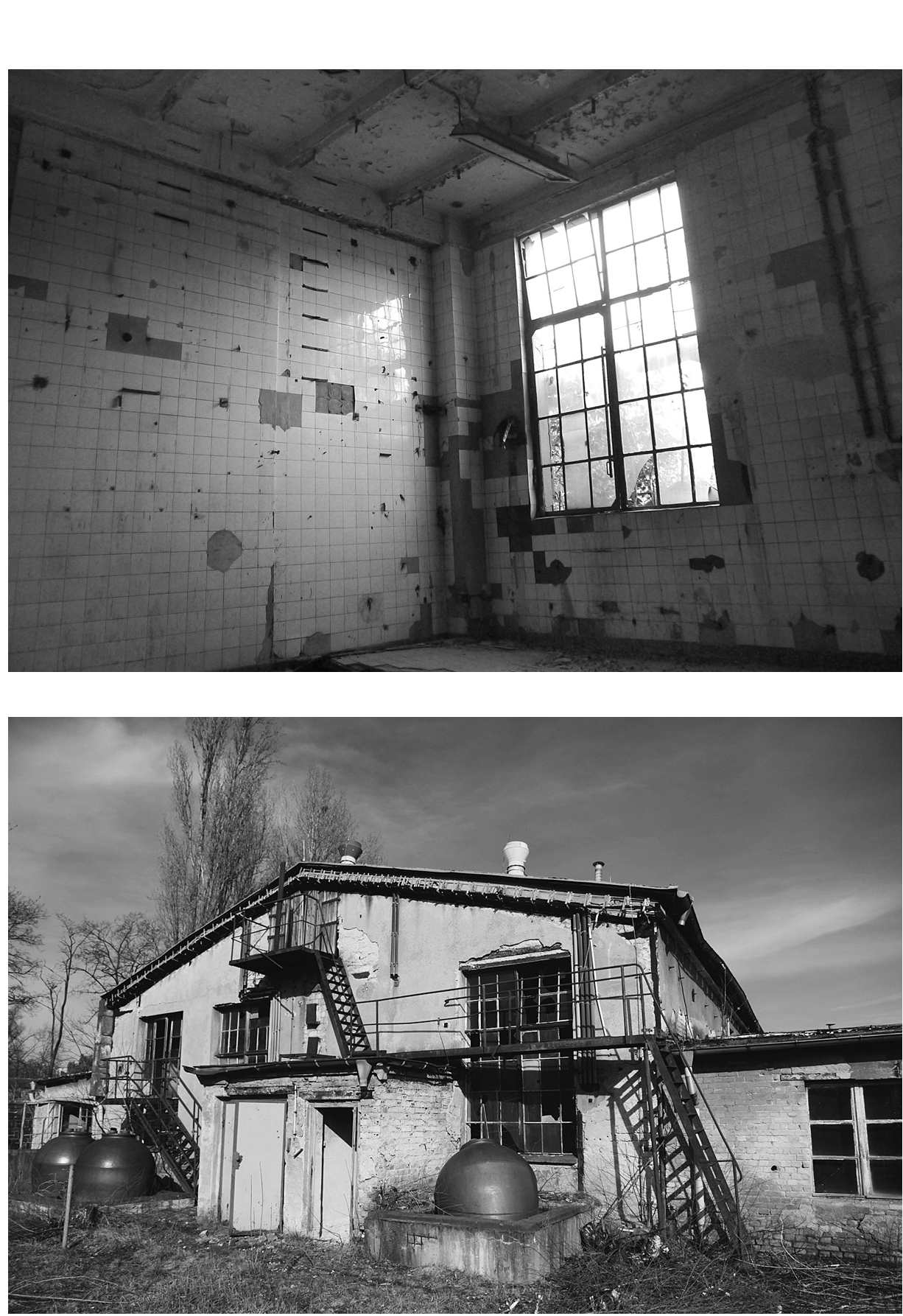
By now the former Temmler factory in Berlin-Johannisthal has fallen into ruin. There is no sign of its prosperous past, of a time when millions of Pervitin pills a week were being pressed. The grounds lie unused, a dead property. Crossing a deserted parking lot, I make my way through a wildly overgrown patch of forest and over a wall stuck with broken bits of glass designed to deter intruders. Between ferns and saplings stands the old wooden witchs house of the founder, Theodor Temmler, once the nucleus of the company. Behind dense alder bushes looms a forsaken brick building. A window is broken enough for me to be able to climb through, stumbling into a long dark corridor. Mildew and mold grow from the walls and ceilings. At the end of the hallway a door stands beckoning, half open, encrusted with flaking green paint. Beyond the door, daylight peers through two shattered, lead-framed industrial windows. An abandoned birds nest hides in the corner. Chipped white tiles reach all the way to the high ceiling, which is furnished with circular air vents.
This is the former laboratory of Dr. Fritz Hauschild, head of pharmacology at Temmler from 1937 until 1941, who was in search of a new type of medicine, a performance-enhancing drug. This is the former drug lab of the Third Reich. Here, in porcelain crucibles attached to pipes and glass coolers, the chemists boiled up their flawless matter. Lids rattled on potbellied flasks, orange steam released with a sharp hiss while emulsions crackled and white-gloved fingers made adjustments. Here the methamphetamine produced was of a quality that even Walter White, the drug cook in the TV series Breaking Bad, which depicts meth as a symbol of our times, could only have dreamed of.
Voluntary dependence is the finest state.
Johann Wolfgang von Goethe
To understand the historical relevance of methamphetamine and other substances to the Nazi state, we must go back before the beginning of the Third Reich. The development of modern societies is bound as tightly with the creation and distribution of drugs as the economy is with advances in technology. In 1805 Goethe wrote Faust in classicist Weimar, and by poetic means perfected one of his theses, that the genesis of man is itself drug-induced: I change my brain, therefore I am. At the same time, in the rather less glamorous town of Paderborn in Westphalia, the pharmaceutical assistant Friedrich Wilhelm Sertrner performed experiments with opium poppies, whose thickened sap anesthetized pain more effectively than anything else. Goethe wanted to explore through artistic and dramatic channels what it is that holds the core of the world togetherSertrner, on the other hand, wanted to solve a major, millennium-old problem that has plagued our species to a parallel degree.
It was a concrete challenge for the brilliant twenty-one-year-old chemist: depending on the conditions they are grown in, the active ingredient in opium poppies is present in varying concentrations. Sometimes the bitter sap does not ease the pain quite strongly enough, and other times it can lead to an unintended overdose and fatal poisoning. Thrown back entirely on his own devices, just as the opiate laudanum consumed Goethe in his study, Sertrner made an astonishing discovery: he succeeded in isolating morphine, the crucial alkaloid in opium, a kind of pharmacological Mephistopheles that instantly magics pain away. Not only a turning point in the history of pharmacology, this was also one of the most important events of the early nineteenth century, not to mention human history as a whole. Pain, that irritable companion, could now be assuaged, indeed removed, in precise doses. All over Europe, apothecaries had to the best of their ability (and their consciences) pressed pills from the ingredients of their own herb gardens or from the deliveries of women who foraged in hedgerows. These homegrown chemists now developed within only a few years into veritable factories, with established pharmacological standards. Morphine was not only a method of easing lifes woes; it was also big business.
Font size:
Interval:
Bookmark:
Similar books «Blitzed: drugs in the Third Reich»
Look at similar books to Blitzed: drugs in the Third Reich. We have selected literature similar in name and meaning in the hope of providing readers with more options to find new, interesting, not yet read works.
Discussion, reviews of the book Blitzed: drugs in the Third Reich and just readers' own opinions. Leave your comments, write what you think about the work, its meaning or the main characters. Specify what exactly you liked and what you didn't like, and why you think so.

